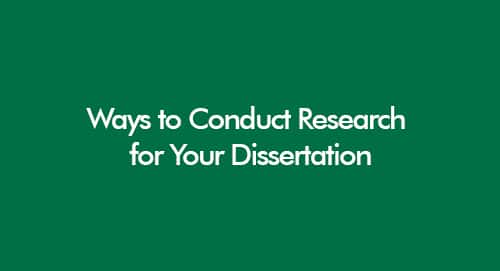
Write Faster, Write Better: How to Write Fast and Efficiently
October 13, 2022
How to Write a Conclusion for Academic Paper | Insider Advice and Explanation
October 14, 2022Turn your academic report's discussion section into a captivating narrative. Explore our blog post on 'How to Craft a Captivating Discussion in an Academic Report' for tips and techniques to intrigue your readers.
Discover How the Discussion Section Can Assist in Different Aspects Here
The discussion section helps highlight your academic report's importance, significance and relevance. Whether one is a student, researcher, or seasoned professional, the following guidelines are poised to enhance the quality and impact of one's report significantly.
Learn about Various Conventions for Writing the Discussion Section
There are multiple conventions to write the discussion portion, but you should centre your work on the basic widely accepted framework:
- Summary: A concise summary of your primary outcomes.
- Interpretations: What do your findings conclude?
- Implications: Why do your outcomes matter?
- Limitations: What are your results not able to tell the reader?
- Recommendations: Routes for more research or analysis
What Makes a Discussion Effective?
You've already presented the purpose of your research and thoroughly explained the technique in the methodology and other sections, so when the time to write a discussion comes, you've already done the groundwork.
Learn How the Discussion Conveys Broader Implications of the Findings
When submitting to a publication that chooses papers based on novelty or prospective effect, it can be difficult to highlight the implications without overstating the findings. The discussion section concludes what your results imply, irrespective of the journal you submit to.
A good discussion section contextualizes your findings. It should contain the following:
- The results of your study,
- An examination of related academic work, and
- A comparison of your findings with your original theory.
How to Craft a Captivating Discussion in an Academic Report?
The following tips will help you craft an engaging discussion emphasizing the importance of your report:
1. Summarize Your Research
Commence this section by restating your research questions, followed by a concise overview of your principal findings. Rather than a mere replication of earlier content, aim to present a condensed synthesis of the overarching discoveries that directly pertain to your primary research inquiries. This section should be limited to a single paragraph.
The distinctions between a discussion part and a results section are difficult for many students to understand. The key is to provide your results in your conclusion section and analyze them subjectively in your discussion. To keep your paper crisp, try not to combine the components of these two sections.
2. Share Your Opinions
Share your perspective about your findings with your readers. You might have a clear relation of results with research inquiries, but your readers might need road signs to connect the dots.
Arrange your discussion around major factors, hypotheses, or research topics. You can alternatively start by emphasizing the most important or unexpected findings.
3. Discuss the Implications of the Research
Show how your findings align with what we already know, what new things they bring to light, and how they can impact our understanding or real-world applications. Make sure to clearly explain your research's specific value and why it matters to the reader.
4. Understand the Limitations
Even the most thorough research has limitations in scope and methodology. It's crucial to acknowledge these to establish your trustworthiness. Limitations aim to depict what can accurately and cannot be inferred from your study.
Limitations may result from the general study design, particular methodological decisions, or unexpected challenges that surfaced throughout the research process.
5. Share Your Recommendations
Incorporate recommendations for real-world uses or further research from analyzing your results. Sometimes, these suggestions are deferred until the conclusion.
The constraints might immediately result in recommendations for more study. Don't just say that additional research should be done; provide specific suggestions for how future work may expand on the subjects that your current study was unable to cover.
Do’s and Don'ts While Writing Your Discussion
The things we discussed earlier can help you develop ideas and arrange your discussion. However, many writers often make mistakes when they have issues with their papers. Finding the right balance when writing a discussion can be tough, you need to summarize your findings, give context to your research, and not add new stuff. Just keep in mind that your article should show your results with confidence and honesty!
Do’s:
- Start by clearly stating the significant findings. It will support the reader's primary takeaway and lay the groundwork for the remaining discussion.
- Explain the reasons behind the reader's interest in your study's discoveries. Explore the consequences of your outcomes in relation to earlier research, considering both the benefits and drawbacks of your study.
- Indicate if the findings support or refute your theory. What may be the causes if your theory was found to be incorrect?
- Introduce fresh or broader approaches to considering the research subject. List the possible next actions for pursuing any unanswered questions.
- When addressing a current or persistent issue, like global warming, consider the various repercussions of finding a solution.
- Be succinct. Including irrelevant stuff might overshadow the primary conclusions.
Don’ts:
- Incorporate fresh points or additional supportive details that haven't been discussed before. Introduce relevant facts and supporting ideas within the main content of the paper.
- Don't weaken your authority by adding statements that doubt your technique or execution, even if your study has serious shortcomings.
- Don't be afraid to mention the limitations or negative outcomes. Readers will fully grasp the provided study if limits and bad outcomes are highlighted. Potential drawbacks include potential sources of bias, dangers to internal or external validity, difficulties putting an intervention into action, and other problems arising from the nature of the study design.
- Do not repeat your findings in whole sentences. Use "bridge phrases" that connect the result to the interpretation if you need to remind the reader of the finding to be addressed.
- The discussion of your work can also contain recommendations for more research but do not repeat them there.
- Do not add new results to the discussion. Be careful not to mistake a finding's repetition for an interpretation.
Conclusion
Have someone else read your work to ensure it's understandable; if not, you might need to make revisions. In conclusion, always keep in mind that the main goal of writing a scientific discussion is to showcase your findings. Therefore, invest time in making sure it's clear, brief, and pertinent.
You can consider the following resources from Premier Dissertation to learn more about Report Writing.
Get 3+ Free Dissertation Topics within 24 hours?



























